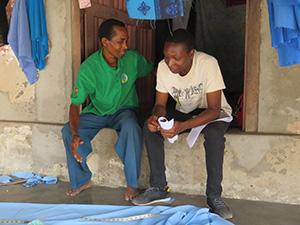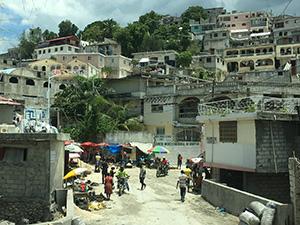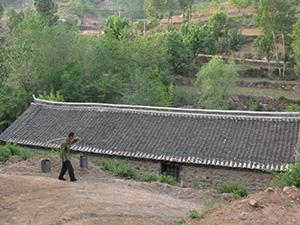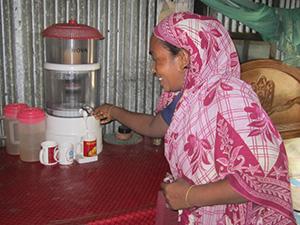
Global Impact Collaboratory
Projects
We advance the GIC mission to advance social data collection for international development by collaborating with funding agencies and their contractors on signature projects. Together we test, refine, and learn what works best within real world development programs.
Communities and Wildlife Crime in Southern Africa
Many development projects in the south of Africa are engaged in animal conservation efforts, but these must address the related burdens of conservation for local communities. The GIC is working with USAID, Copperbelt University (Zambia), Chemonics and IFAW to conduct social research in Zambia on community life-ways, concerns and challenges around wildlife crime enforcement -- and perceived impacts on community wellbeing. We focus on three key domains: cultural and other values of wildlife, community benefits from conservation, and interactions with both wildlife and authorities.
Adaptation to Extreme Weather Events in Mozambique
Extreme weather is a growing threat, most particularly to communities with few resources at risk of drought and flooding. How people can best adapt to such challenges requires a sophisticated understanding of what they see as the risks, and their capacity to respond. In partnership with USAID’s Coastal Cities Adaptation Project and their contractor Chemonics International, the GIC applied and compared the time, cost, training-needs, and insights gleaned of traditional (survey, focus groups) and more cutting-edge (auto-coded one on one interviews and cultural consensus surveys) methods, applied in the same project at the same time. This demonstrated that both newer techniques could be deployed as or more quickly and cost-effectively as traditional methods, but yielded richer forms of data that can inform program design and evaluation.
Improving Access to Justice in Haiti
In partnership with USAID’s Justice Sector Strengthening Program (JSSP) program in Haiti, and their contractor Chemonics International, the GIC is providing technical support for program baseline data collection, providing a basis for both improved program implementation and the next four years of program MEL as impacts need to be assessed. The baseline focused on understanding and measuring how people in the most vulnerable and remote communities in Haiti use (or don’t) formal and informal justice institutions. The GIC strategy for the baseline included a rapid ethnographic review, design of all baseline tools using both traditional and newer methods of data collection, training of all field staff to meet scientific standards of data collection, and technical support at all points of data analysis. The resulting data are highly detailed, useful, can be continually accessed for repurposing as the program unfolds and new questions arise. The high scientific standard that will allow highly accurate conclusions later about the scale quality of program impact. The key innovation of the JSSP project was demonstrating that the most scientifically-rigorous and extremely detailed findings can be extracted at similar or lower costs than normal baseline activities.
Another outcome is ensuring data collection was done in ways to allow peer-reviewed academic papers to be produced, so other projects can apply findings to their own interventions with high levels of confidence. With scientifically rigorous data being produced, other applications are also possible. For example, Haiti project data are being used to formulate better household wealth measures that can be applied in a wide array of future development programs.
The Global Ethnohydrology Study: Better ways to capture cultural information
Running for more than a decade, spanning more than 15 countries, and engaging academics and practitioners from an array of fields, like development, hydrology, sustainability, and geography, the Global Ethnohydrology Study has been testing and refining a suite of reliable and valid ethnographic methods that can relatively quickly and easily compare cultural beliefs (about water and climate) across space and time. The findings from this project have appeared in many top social science journals, repeatedly demonstrating that our quick and straight-forward data collection methods, properly executed, can provide scientifically-recognized, detailed, and meaningful social and cultural information.
Improving Water Security Screening Globally
For 2016-18, the GIC has been partnering with an array of other university partners through the HWISE network, to use the global ethnohydrology study insights to aid design and testing of a new global household water insecurity screener tool. The new tool will take into account people’s cultural, not just physical, needs for water (such as for washing and cleaning).




